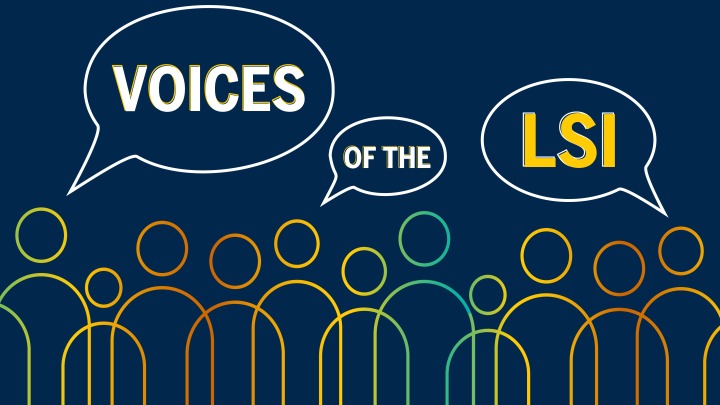
Voices of the LSI: What I learn when I listen to my trainees

In the past several years, the ways many of us think about society, academia, and our work environment have changed significantly due to societal movements, political events and the COVID-19 pandemic. These experiences got me thinking: What is a good research environment? What is a good society? What are scientists’ societal responsibilities beyond their own labs?
My most important takeaway from this period: listen to our trainees. I will share two stories to explain why their voices are important and how they can help everyone grow.
I am an immigrant from China. I obtained public school education in a “small” city (by the Chinese standard) that was poor (by the American standard). Despite all the caveats of the educational system there and then, my science education was solid and it elicited in me a strong interest in science. In the 1980s, we had chemistry, physics and biology labs that were well-equipped for middle schoolers and high schoolers to learn about scientific experiments. My high school even had a computer lab with about 15 single-board computers donated by an alumnus in the United States.
Because I completed primary, secondary and college education in China, I did not know much about the public schools in the U.S. until my own children began attending school here; and I was certainly oblivious to the systemic racial and socioeconomic disparities in the American education system. The thought that 10 minutes away from the top public university in the U.S. exist public schools that do not have enough teachers, funding and resources to teach science never crossed my mind. It was thus eye-opening to learn from a graduate student in my lab, Sarah Pizzano, about the lack of science teachers in public schools in Ann Arbor’s neighboring town, Ypsilanti.
As shocking as the situation was to me, it was heartening to learn from Sarah that a group of graduate students had started an outreach program to volunteer teaching science in public schools in Ypsilanti. Since learning about it, both my high school daughter and I have volunteered in the program. Through this experience, we have gained more perspective on the social and educational disparities that hit so close to us and how we can actively work to improve the situation and narrow these gaps in resources.
Trainees in my lab have also helped me think more deeply about what we can do within our own research groups and institutes to build more equitable systems. Efforts to improve DEI and combat racism have been intensively discussed across U-M over the past several years. These are complex issues—and understanding them requires knowledge and, importantly, a platform for learning and listening. Elizabeth Cebul, a postdoctoral researcher in my lab, has been a champion for these efforts here at the LSI.
With Brittany Morgan (a former postdoc in Anna Mapp’s lab), Elizabeth started a platform called the “LSI Learning Spaces for Diversity, Equity and Inclusion” for people to learn about and discuss DEI-focused topics (see more about this effort). The amount of effort they put into the conceptualization and organization of this platform is truly exceptional. They created a safe, pressure-free space for people to use their voice, and I have personally been educated through the LSI Learning Spaces. These discussions allowed me to further grasp the systemic racism that is embedded in American society; deepened my understanding on what “inclusion” means and how it differs from “diversity”; and taught me about other forms of discrimination, such as ableism. Educated and inspired by their work, I have since passed on these new perspectives to my lab members and colleagues and organized DEI discussions in my lab. In this regard, Elizabeth became my mentor.
A two-way learning channel should be open between us PIs and our trainees, especially on issues that affect the next generation of science. When we become more senior, we gain more experience and authority. This may change our interactions with our trainees. We are often too busy to have time with the trainees to discuss their work and careers regularly, and we often don’t see them as our teachers. By doing so, we miss the opportunities of learning important life lessons from them. Our trainees are the future of our society and academia. In them, I see hope.


